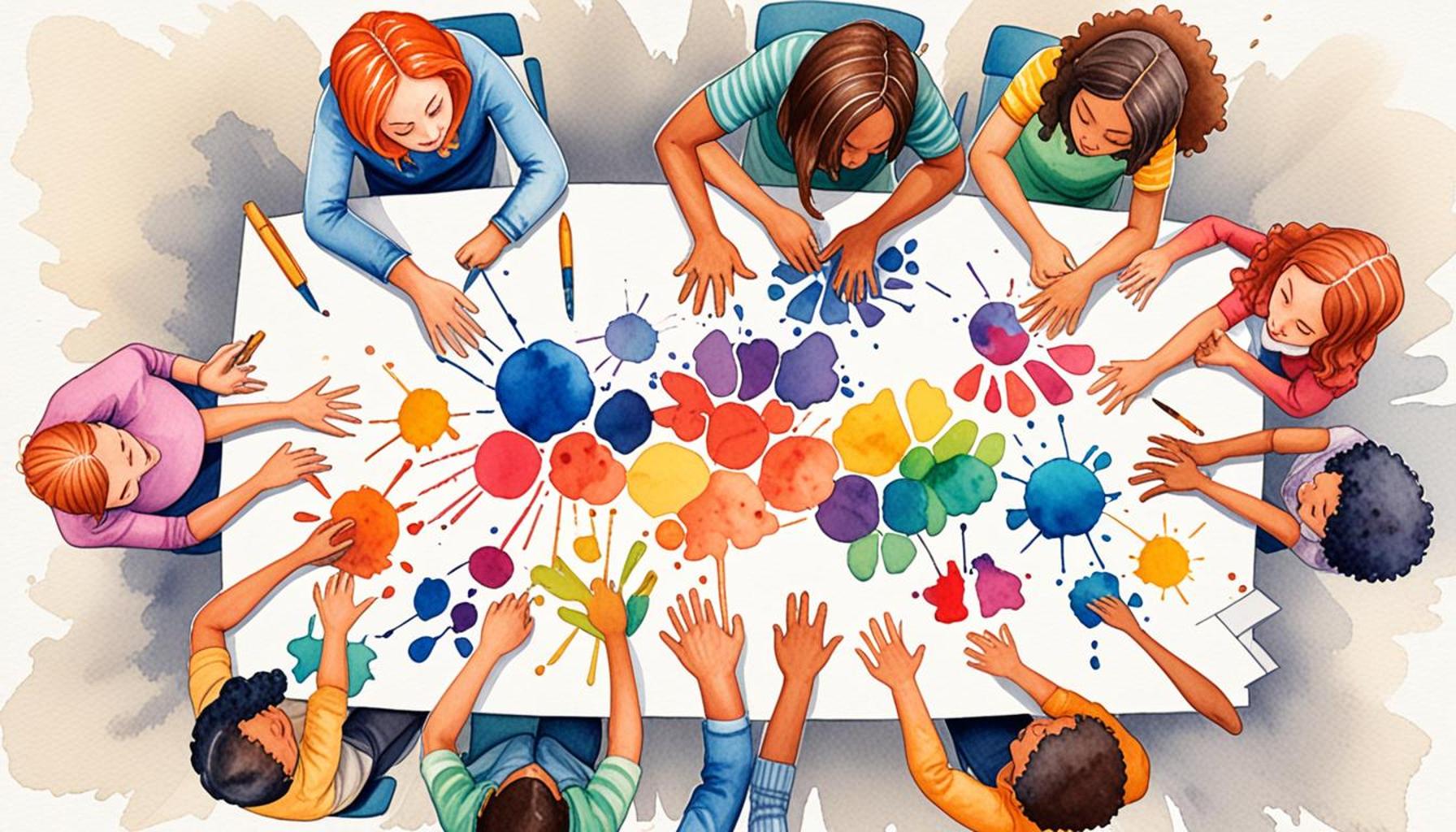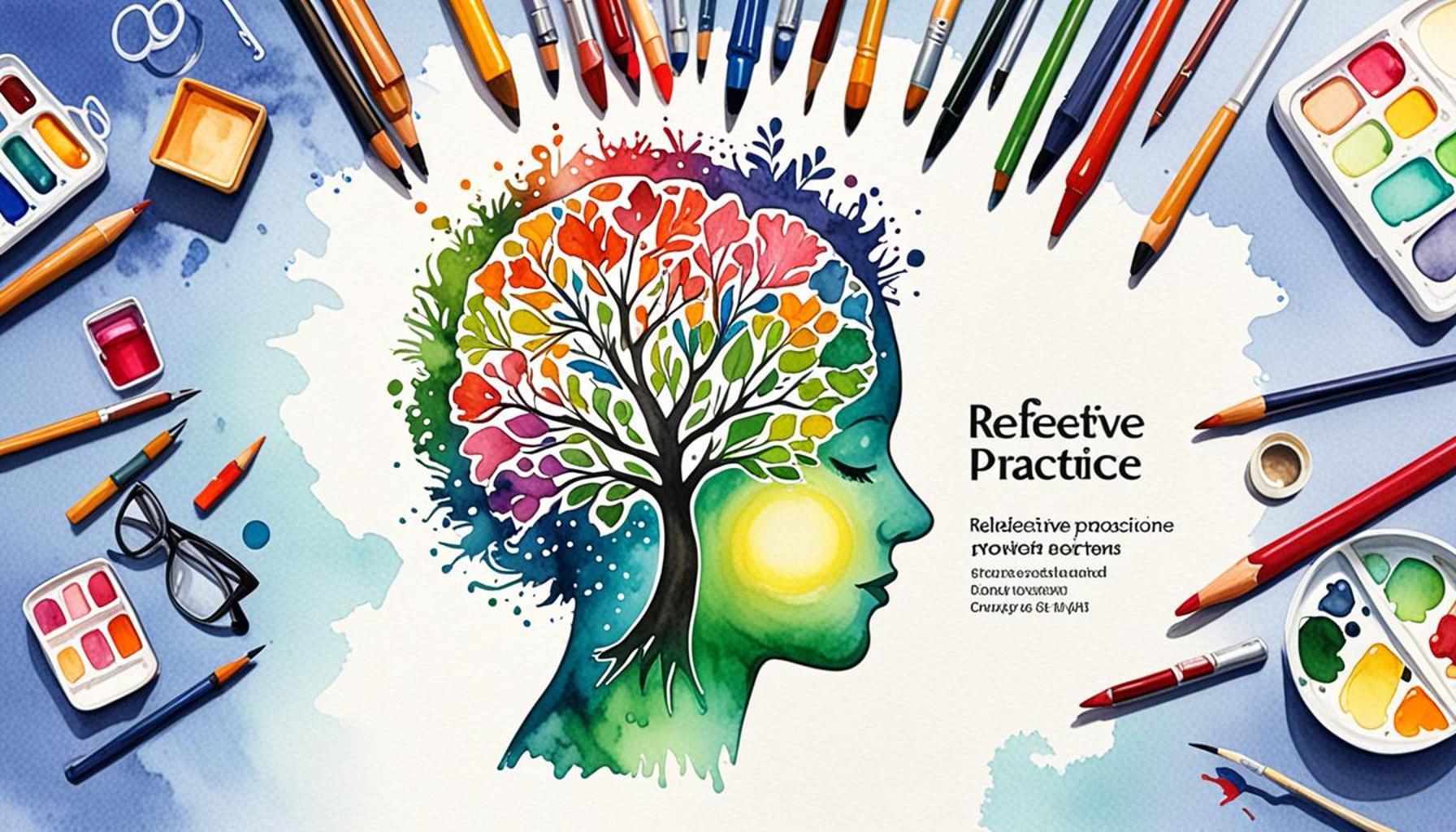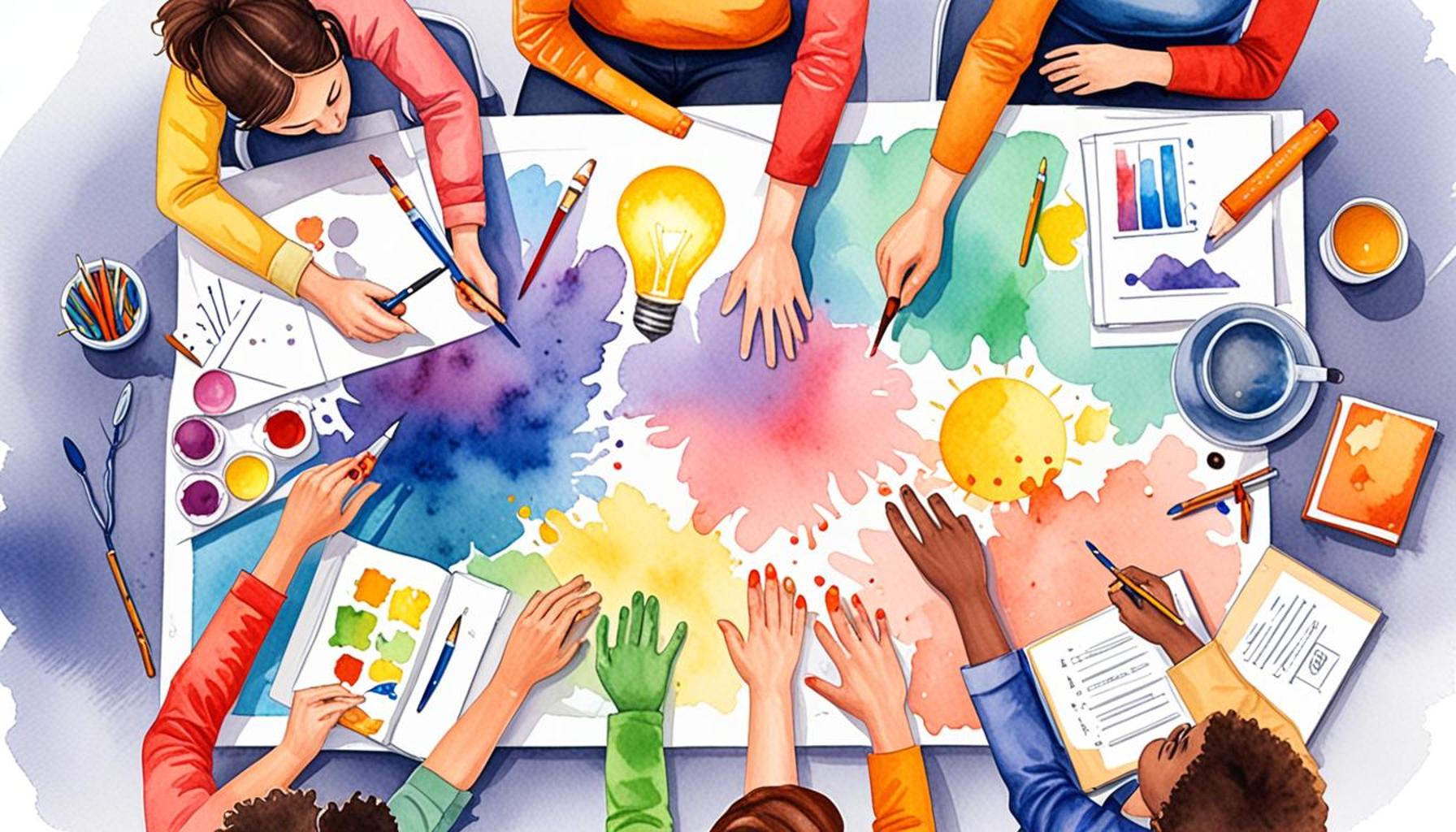Integrating Reflective Practice in Group Dynamics to Foster a Growth Mindset

Harnessing the Impact of Reflection in Collaborative Environments
In today’s rapidly evolving landscape, the necessity for adaptability and the willingness to embrace change have become cornerstones of successful collaboration. This is particularly pertinent within group settings, where the synergy of diverse minds can either spark innovation or inadvertently curtail it. One powerful method to enhance group performance is through the integration of reflective practice, which not only unlocks individual potential but also cultivates a growth mindset across teams.
What is Reflective Practice?
Reflective practice is a structured process that compels individuals and groups to methodically assess their experiences and derive valuable lessons from them. This practice encompasses several key elements:
- Critically assess their actions and results: Participants engage in honest evaluation, weighing successes against setbacks to understand what strategies worked and what didn’t.
- Identify areas for improvement: Groups collaboratively highlight weaknesses and gaps in their processes, fostering a climate of continuous learning.
- Encourage open dialogue among team members: This practice emphasizes communication, allowing members to express thoughts, feedback, and suggestions freely without fear of judgment.
The Role of Group Dynamics
Group dynamics play a pivotal role in how effective teams function. The interaction patterns, communication styles, and mutual understanding among members significantly impact outcomes. Essential characteristics of effective group dynamics include:
- Clear communication and active listening: Open channels for sharing ideas ensure that every voice is heard, which can lead to innovative solutions.
- Mutual respect among participants: When team members feel valued, they are more likely to contribute fully and support each other.
- A collective commitment to shared goals: This sense of purpose unifies the group, driving collaboration and enhancing motivation.
When reflective practice is embedded within these dynamics, it fosters a culture of ongoing growth and adaptability. Such a culture not only leads to improved problem-solving approaches but also nurtures resilience—qualities that are indispensable in today’s competitive arena. For instance, in Nigeria, where industries are rapidly modernizing, organizations that prioritize reflective practices often outperform their rivals by quickly learning from experiences and applying new methodologies.
Moreover, the integration of these practices can transform teams across various sectors, whether in education, healthcare, or the tech industry. By thoroughly understanding and embracing reflective practices, groups can pave the way for significant and innovative transformations, unlocking new avenues for success and collaboration.

LEARN MORE: This related article may interest you
Cultivating a Culture of Reflection
To effectively integrate reflective practice in group dynamics, it is essential to establish a culture that prioritizes reflection as a fundamental aspect of teamwork. This cultural shift requires commitment from all group members and a collective understanding that learning from experiences will lead to both individual and group development. The implementation of reflective practice can be achieved through a structured approach, which involves several key strategies:
- Creating regular reflection sessions: Allocating specific times for team members to reflect on their experiences enhances accountability. These sessions encourage thoughtful examination of processes and outcomes, allowing participants to voice insights gained from their shared experiences.
- Utilizing feedback mechanisms: Establishing a system for continuous feedback fosters an environment where openness is encouraged. Anonymously gathered feedback can uncover underlying sentiments and spur productive discussions on improvement.
- Facilitating structured discussions: Guided inquiries can help teams delve deeper into their actions and decision-making processes. Questions such as “What worked well?” and “What challenges did we face?” prompt critical thinking and articulate a pathway for learning.
By incorporating these strategies, groups can move away from a culture of blame and towards one that celebrates growth. This aligns perfectly with the notion of a growth mindset, where challenges are viewed as opportunities for learning rather than insurmountable obstacles. In Nigeria’s dynamic business scene, where innovation is crucial for staying competitive, harnessing a growth mindset through reflective practices can help teams adapt swiftly to change.
Take, for instance, Nigerian tech startups, which have emerged as global players by emphasizing self-reflection in collaborative processes. As teams share their learning experiences and reflect on past mistakes, they can pivot quickly and implement solutions that propel them forward. Research highlights that organizations that actively encourage reflective practices can achieve higher levels of employee engagement and satisfaction, contributing to overall success.
Furthermore, integrating reflective practices can significantly enhance team cohesion. As members engage in open discussions about their experiences, trust is built, leading to stronger interpersonal relationships. A united team not only works more effectively but also drives collective creativity, which is vital in addressing the unique challenges arising in various sectors across Nigeria, including healthcare, education, and entrepreneurship.
In essence, the act of embedding reflective practice within group dynamics serves as a catalyst for fostering a sustained growth mindset. The interplay of learning, sharing, and adapting creates a powerful synergy that benefits both the individuals involved and the organizations they represent. As teams navigate the complexities of their environments, establishing such a culture could differentiate successful organizations from their competition in Nigeria and beyond.
Integrating reflective practice into group dynamics not only enhances individual growth but also strengthens collaboration and innovation within teams. This approach promotes an environment where individuals feel safe to express their thoughts and ideas, encouraging a culture of learning and continuous improvement. One of the key elements of fostering a growth mindset through this integration lies in the practice of regular reflection. By engaging in self-assessment and peer feedback, participants develop critical thinking skills that allow them to analyze their contributions and the collective group’s performance more effectively.Moreover, reflective practice encourages team members to take ownership of their learning journeys. They become more aware of their strengths and areas for growth, leading to a deeper understanding of how their actions impact the group dynamics. Facilitating discussions around experiences enables members to share insights and learn from one another, making it easier to navigate challenges and celebrate successes together.Incorporating structured reflective sessions into team meetings can significantly enhance group cohesion. These sessions create opportunities for participants to share personal and professional anecdotes, fostering empathy and connections among team members. As they articulate their thoughts and listen to diverse perspectives, they cultivate a culture of openness that is essential for effective collaboration.This process not only aids in developing a growth mindset but also helps to identify specific strategies for improvement. Teams can collaboratively set goals related to their reflective insights, which significantly enhances motivation and engagement. By embracing this holistic approach, organizations can harness the collective intelligence of their teams to drive innovation and achieve common objectives. Ultimately, the integration of reflective practice within group dynamics serves as a catalyst for personal and professional development, enabling teams to thrive in a rapidly evolving environment. Encouraging a growth mindset becomes a shared journey rather than an individual endeavor, fostering a more resilient and adaptive organizational culture.
ADDITIONAL INSIGHTS: Expand your understanding here
Embracing Continuous Learning and Adaptation
In the modern landscape of business and education in Nigeria, the integration of reflective practice within group dynamics goes hand in hand with fostering a culture of continuous learning and adaptation. As teams reflect on their experiences, they are not only analyzing past performances but are also equipping themselves with the insights necessary to adapt to future challenges. This adaptability is essential in an environment that is constantly evolving, driven by technological advancements and shifting market demands.
- Encouraging collaborative learning: Group dynamics thrive on collaboration, and when reflective practices are instituted, the sharing of knowledge becomes a communal effort. Regularly scheduled reflections offer a platform for team members to teach one another, combining their unique experiences and expertise. This fosters an omnidirectional learning environment, where everyone is both a mentor and a mentee, essential for nurturing a growth mindset.
- Integrating diverse perspectives: Nigeria’s diverse cultural landscape provides a rich tapestry of experiences. By encouraging team members to reflect on their individual and collective backgrounds, teams can leverage varied perspectives. Such inclusiveness not only enriches discussions but also opens pathways to innovative solutions that might otherwise remain unexplored.
- Establishing a failure-friendly narrative: Reframing failures as learning opportunities is a crucial aspect of a growth mindset. By discussing setbacks during reflection sessions, teams can collectively acknowledge challenges without the fear of stigma. This cultivates resilience within the group, empowering members to take risks and experiment with new ideas, a necessity in Nigeria’s competitive sectors.
Research indicates that cultivating a culture of reflection not only aids in skill enhancement but also significantly reduces burnout and stress among employees. When team members are encouraged to share their thoughts and feelings about their experiences candidly, they develop a sense of belonging and emotional safety. This results in a workforce that is less likely to endure unnecessary strain, making the organization more capable of navigating turbulent times.
The integration of reflective practice is already evident in various successful Nigerian enterprises. For example, companies in the fintech space are continually leveraging lessons learned from past initiatives to fine-tune their offerings. Startups like Paystack exemplify the value of reflective practices; their teams engage in post-mortem analyses following product launches. This examination allows them to iterate quickly based on user feedback, effectively transforming lessons learned into immediate action points.
Moreover, the role of leadership in fostering reflective practice cannot be understated. Leaders who model reflective behaviors—by sharing their own experiences and reflections—create a safe space where team members feel encouraged to do the same. This top-down approach is vital, especially in hierarchical cultures, allowing for an equitable contribution to learning and development.
Finally, to fully harness the potential of integrating reflective practice, organizations in Nigeria must adopt technology that facilitates collaboration and reflection. Tools like digital notebooks or project management platforms can capture insights in real-time, ensuring that reflections are not just verbal transactions but documented journeys that guide teams forward. As groups continuously engage in reflective practices, they not only enhance their understanding of collective dynamics but cultivate the growth mindset crucial for thriving in today’s fast-paced environments.
ADDITIONAL INSIGHTS: Expand your understanding here
Conclusion
Integrating reflective practice into group dynamics is not just an innovative approach; it is a foundational strategy for organizations in Nigeria aiming to cultivate a robust growth mindset. By encouraging teams to come together and examine their achievements and setbacks, businesses can create an ecosystem of continuous learning that adapts to the rapidly changing realities of the local and global landscape. The essence of this practice lies in its ability to transform individual experiences into collective wisdom, fostering collaboration that enhances overall performance.
The diverse perspectives inherent in Nigerian workplaces enrich these reflection sessions, leading to richer discussions and more innovative problem-solving. Moreover, as organizations implement a failure-friendly narrative, team members may feel empowered to take calculated risks, ultimately driving innovation and resilience. The emotional safety cultivated through open reflection can significantly reduce workplace stress and enhance job satisfaction, thereby boosting productivity and morale.
As seen with industry leaders like Paystack, the shift towards reflective practice leads to agile responses to market demands and user feedback, positioning such companies at the forefront of their sectors. Leaders play a critical role in this journey; their commitment to sharing experiences and modeling reflective behaviors sets the tone for a culture that values growth and learning at all levels.
To fully leverage the power of integrating reflective practice, organizations must also embrace technology that facilitates real-time collaboration and creates documented pathways of growth. As teams embark on this journey together, they not only enhance their capability to navigate challenges but also build an enduring framework for growth that is essential for thriving in Nigeria’s competitive landscape.


